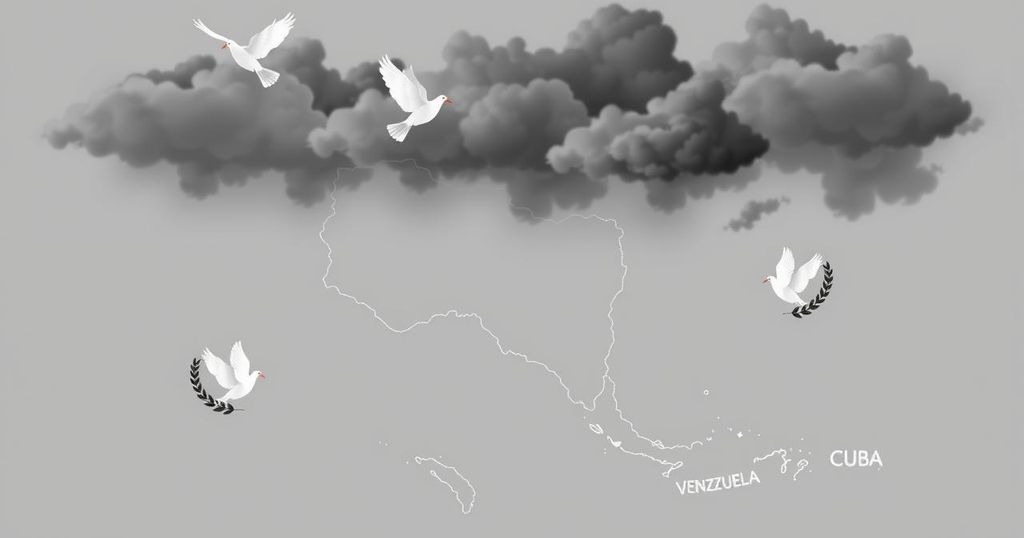The United States has drastically reduced foreign aid to Nicaragua, Cuba, and Venezuela, shutting down most programs that supported democracy and freedom. The funding cuts have left the future of organizations like the IRI and NDI uncertain, threatening their ability to maintain efforts against authoritarianism in these countries. Notably, the cuts coincide with growing repression of religious and political freedoms in Nicaragua under President Ortega’s regime.
The United States has recently reduced its foreign aid programs significantly in Nicaragua, Cuba, and Venezuela, nations perceived as governed by authoritarian regimes. The funding cuts impact initiatives aimed at supporting political prisoners, opposition activists, and religious organizations, which have been deemed not to align with the nation’s interests, as reported in a translation by Havana Times of Confidencial’s findings.
This decision led to the cancellation of 92 out of 95 programs administered by the International Republican Institute (IRI), while the few remaining programs focused on Venezuela have been suspended pending a freeze on foreign aid by an executive order from President Trump. The uncertainty surrounding the future of IRI has intensified as organizational leaders cautioned that without funding, their operations could be unsustainable in the upcoming weeks.
According to IRI President Daniel Twining, it is stated that “cuts to democracy promotion would only benefit dictators in places like Cuba, Venezuela, and Nicaragua.” In addition to the cancellations affecting these specific countries, 175 IRI programs globally are at risk due to the National Endowment for Democracy (NED) losing access to its allocated funds.
The National Democratic Institute (NDI), which promotes democratic ideals alongside the IRI, also confronts similar funding challenges, resulting in the loss of nearly 100 programs, with only one still active in Venezuela. Consequently, numerous employees associated with these organizations, including IRI, NED, and NDI, are either on leave or have been dismissed, as referenced by sources from Havana Times.
Moreover, the reduction in aid coincides with increasing repression toward religious freedom and political dissent in Nicaragua. President Daniel Ortega’s administration has recently targeted the Catholic Church, expelling religious groups and enacting bans on priests performing Last Rites in hospitals, highlighting the oppressive conditions faced by these institutions, as previously reported by CatholicVote.
In conclusion, the United States’ significant cuts to foreign aid aimed at democracy promotion in Nicaragua, Cuba, and Venezuela reflect a strategic decision deemed necessary by the State Department. This reduction has jeopardized the viability of critical initiatives and left many democratic institutions in a precarious position, particularly amid rising authoritarianism and repression in the region. The impact of these cuts will likely hinder efforts to support political opposition and religious freedom, thus benefitting the existing dictatorial regimes.
Original Source: catholicvote.org




